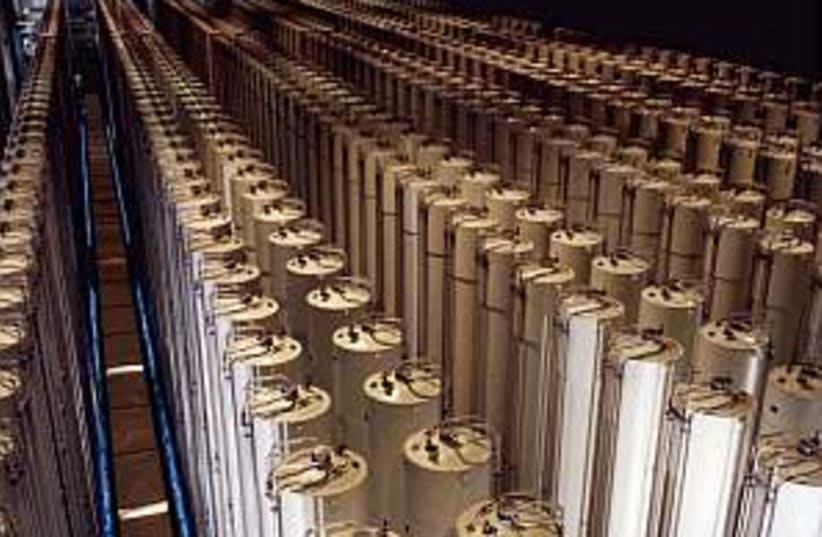| THE IRANIAN THREAT | |
| JPost.com special: news, opinion, blogs and more |
J'lem dismisses Iran's 'nuke boasting'
Teheran announces that it has begun enriching uranium with 3,000 centrifuges.


| THE IRANIAN THREAT | |
| JPost.com special: news, opinion, blogs and more |